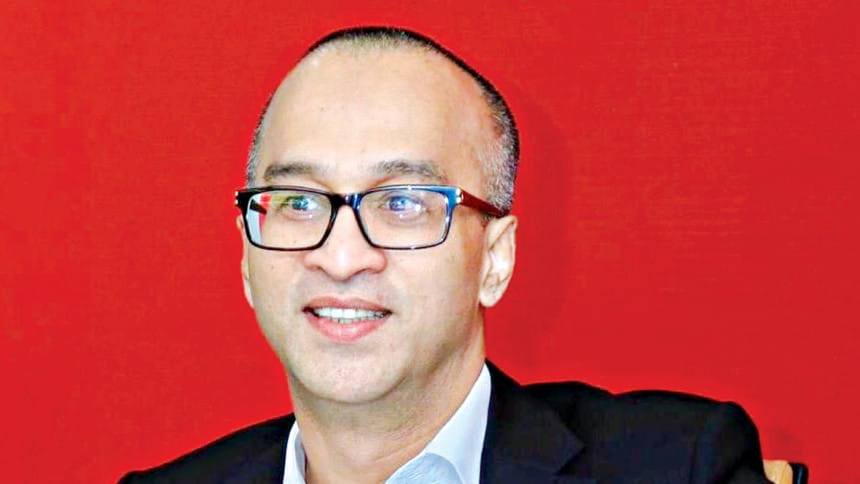Investing in digital literacy to enhance customer awareness and security

Mashrur Arefin
Managing Director & CEO
City Bank
The Daily Star (TDS): How is Bangladesh progressing in its transition to a cashless economy?
Mashrur Arefin (MA): Bangladesh is making significant progress. Merchant payments via digital channels grew from BDT 24,000 crore in 2019 to BDT 135,000 crore in 2024—a 463% increase with a compound annual growth rate (CAGR) of 41%.
Mobile Financial Services (MFS) adoption has been a game-changer, enabling financial inclusion, while government efforts in digitising public services and Bangladesh Bank's push for interoperability are further driving digital transactions. QR codes, POS systems, and online banking are also gaining traction in urban areas.
However, challenges remain—low trust in digital channels, limited internet access, credit card issuance restrictions, and a cash-dominant culture. Most critically, digital payments still cost more than cash transactions.
To meet the government's target of 75% cashless transactions by 2027, incentives similar to those for inward remittances could encourage adoption among consumers and merchants. Additionally, simplifying credit card issuance is crucial—26 lakh cards in a country of 18 crore is far too low. Addressing these barriers will unlock Bangladesh's full digital payment potential.
TDS: What innovative steps has your bank taken to accelerate the shift toward a cashless economy, and how have they impacted customers?
MA: City Bank has been a pioneer in the 'Cashless Bangladesh' initiative, introducing TakaPay debit cards, interoperable Bangla QR, and incentivising QR payments. We actively support the 'Digital Cow Haat,' lead city-wide roadshows, and expand our merchant QR network, making transactions seamless.
Additionally, we invest in digital literacy programmes to enhance customer awareness and security. These initiatives provide convenience, security, and financial inclusion, driving a more efficient and transparent economy.
TDS: What policy changes or government initiatives are crucial for making digital transactions more secure, inclusive, and widely adopted?
MA: Key priorities include:
• Expanding affordable internet access
• Nationwide digital literacy programmes
• Simplifying KYC for financial inclusion
• Reducing VAT on POS & card imports
• Removing VAT on MDR to ease merchant costs
• Scaling up Bangla QR adoption
• Incentivising digital payments
Most importantly, simplifying credit card issuance—especially for lower-middle-income and informal sector workers—is essential to increasing digital transaction volumes.

 For all latest news, follow The Daily Star's Google News channel.
For all latest news, follow The Daily Star's Google News channel. 



Comments